Prius Camper | Why it’s the GREATEST Car to Live In

There are many types of cars that a person can live comfortably in. But in my opinion, a Prius camper is the best of the best.
Unlike other self-proclaimed ‘outdoors experts’ and professional YouTubers, I’m a REAL nomad who has made a Prius his full-time home for the past 12 months.
In addition, I have nothing to sell you in this article. Nada.
My goal is to explain to others out there - who might be frustrated and at a crossroads (like I once was) - why a Prius camper is the PERFECT car to hit the road with.
So let’s get to it…
PRIUS CAMPERS OFFER TONS OF INTERIOR SPACE
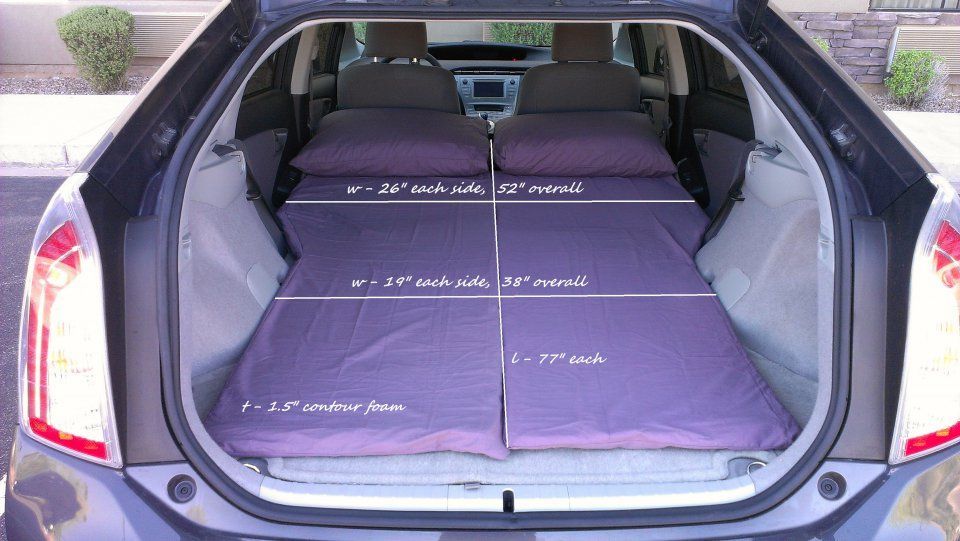
The Prius being a hatchback is a huge advantage for those that want to live in it. It has an amazing amount of interior space. One person could easily sleep inside and still have plenty of room for his or her gear.
Even TWO people can sleep comfortably, though you’d lose a bit of storage room for your belongings. An easy way around this however, would be to get a rooftop cargo box. That would give you the ability to haul much more stuff, if needed.
Since I travel alone, I only use half of the back cargo area as a bed, which can fit a narrow twin-sized mattress. The other half is reserved for my clothes, dry food storage, and other necessities.
On top of all this, there are a gazillion places to stow other items: under my bed, front seat, below the dashboard area, within the spare tire compartment (it’s like a small closet!), etc.
It’s my opinion that nomads should carry as less ‘stuff’ as possible, as this makes life much easier. However, it is AWFULLY nice having the extra room to store things when you must.
PRIUS CAMPERS ARE AMAZINGLY CONFIGURABLE
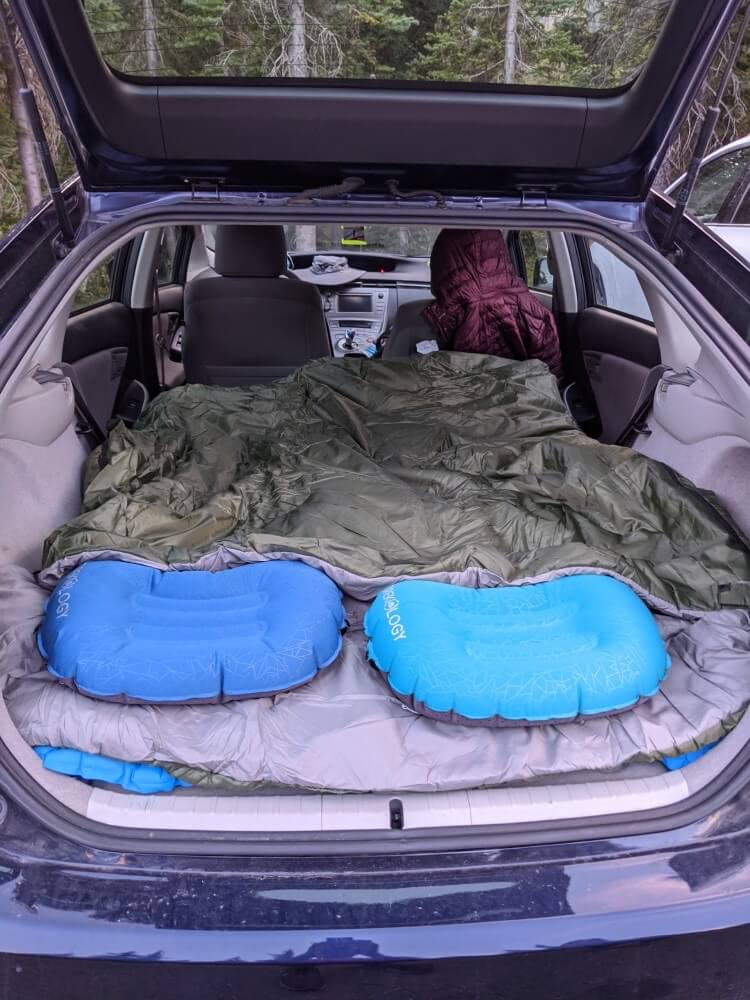
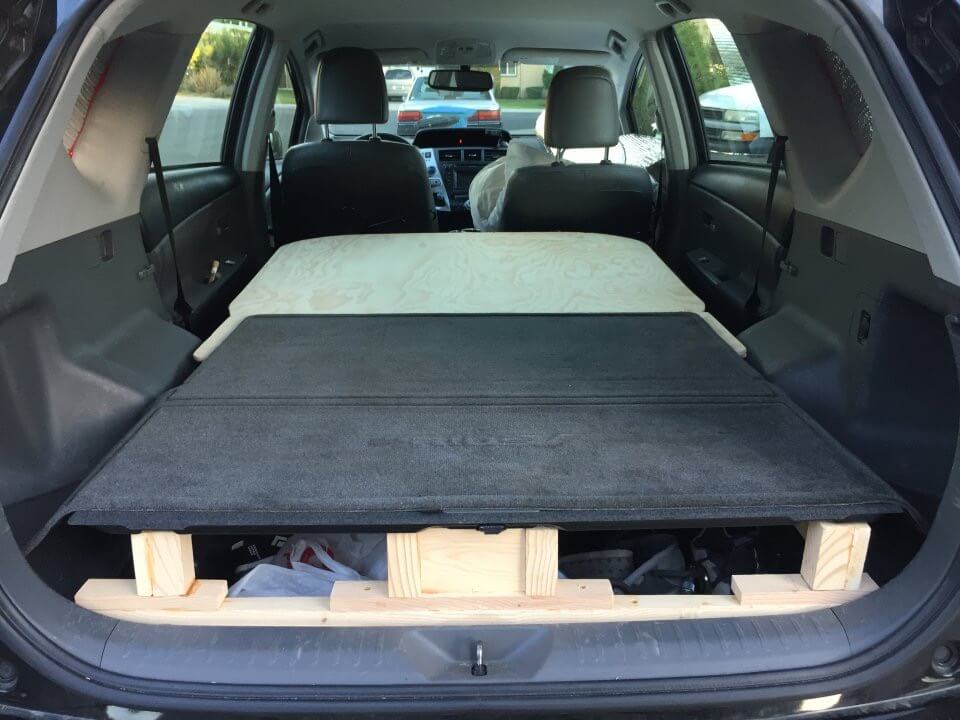
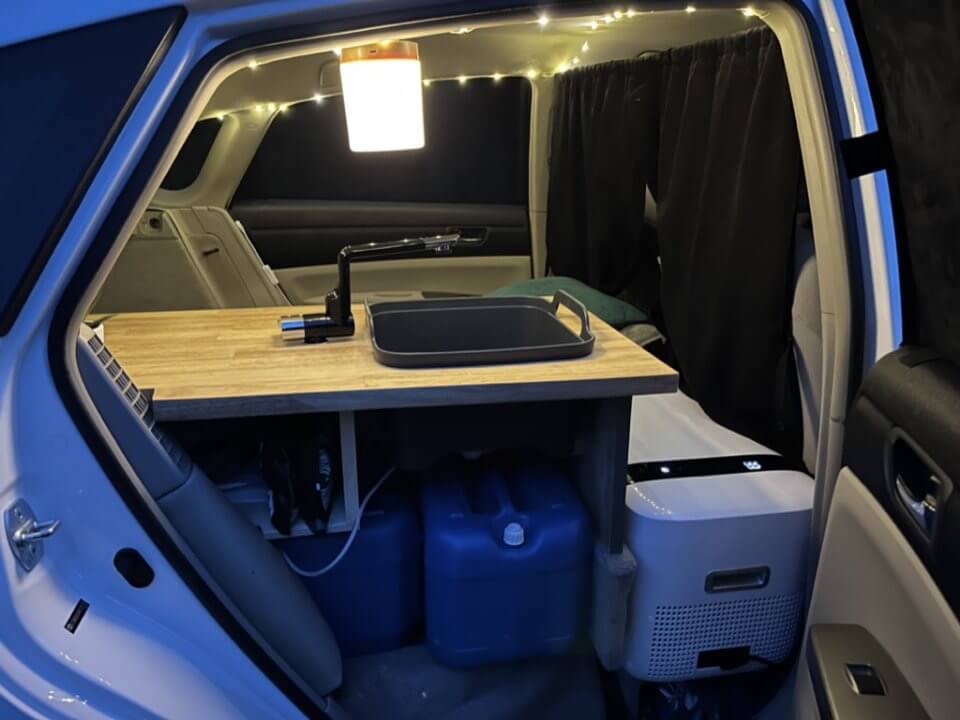
Aside from the immense interior space, Prius campers can be configured in many, many ways.
You can have a full-sized mattress if you wish, a narrow twin, you could lay your mattress over the front seat, keep it just in the back cargo area, or you might fold it up when you’re not in sleeping mode to fit passengers or other belongings.
Infinite options!
A 12v refrigerator can be placed in a variety of spots: front seat, under your bed, at the rear of the cargo area, etc. Matter of fact…
I even have a dedicated area to keep my mobility scooter.
Some people add shelving units to their Prius campers, microwaves…I’ve actually seen a few nomads put portable toilets inside!
Bottom line, while all vehicles can be configured in lots of ways, the Prius’ are essentially made for this. It’s unusual, roomy design provides countless ways to lay out your home-on-wheels.
PRIUS CAMPERS GET TREMENDOUS GAS MILEAGE
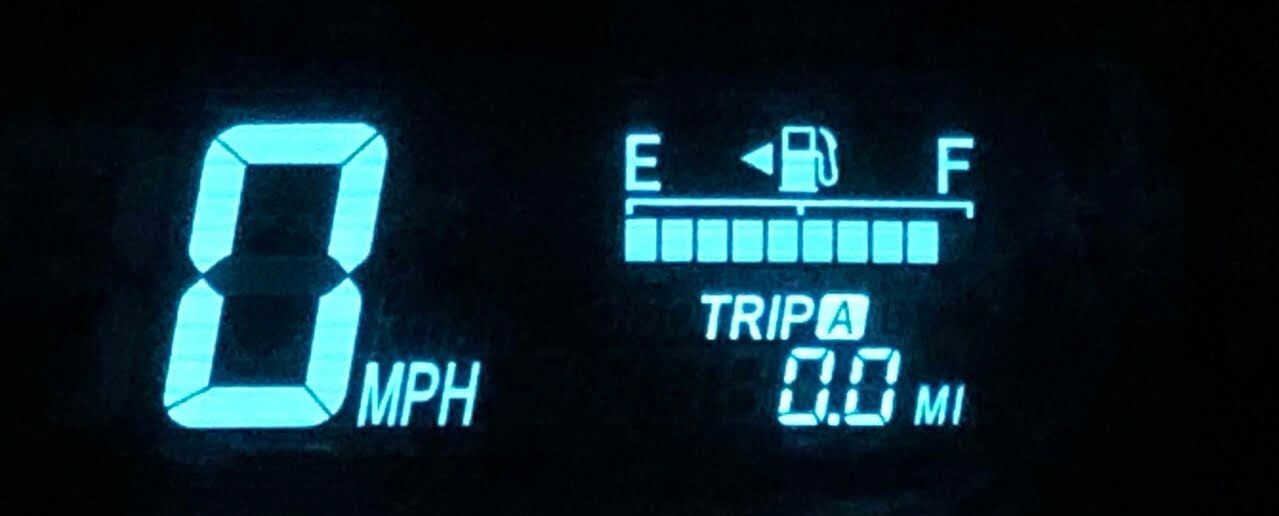
I’m assuming most of the folks reading this article - like me - aren’t swimming in cash. If you’ll be living in a car (or evening camping in one fairly often), the need to control your expenses is critical.
That’s where Prius’ come in. They get an amazing amount of miles per gallon, roughly 48 in the city and 45 on the highway. It’s so nice being able to drive 400-500 miles on about $25 in gas!
Of course, there are lots of cars that get pretty good gas mileage out there, but Prius’ are definitely in the #1 spot (aside from other hybrids & EV’s).
The ‘secret sauce’ of a Prius’ great MPG efficiency lies in its hybrid nature. When driving at slower speeds (under 15-20 MPH), or when idling the vehicle, the car is mostly powered by the electric battery.
Bottom line, if you’ll be traveling far & wide - as the majority of nomads do - then you’ll need a vehicle that isn’t going to continually drain your bank account by burning gas. Prius is best in class as far as fuel efficiency goes.
PRIUS CAMPERS ARE EXCELLENT FOR GOING STEALTH
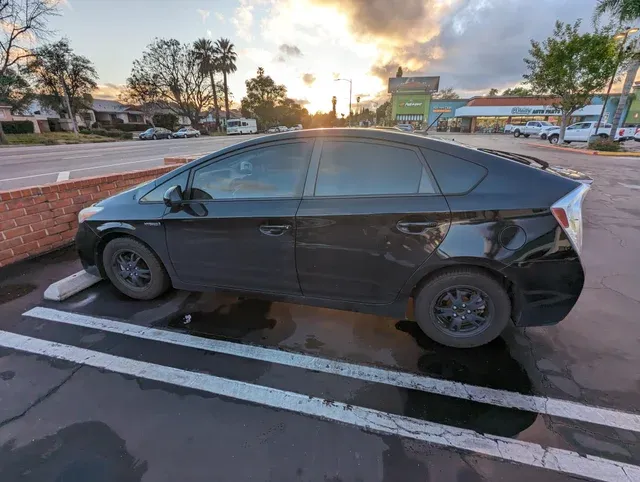
The ability to go unnoticed is a major requirement for those of us who live in a vehicle.
If you’ll be staying at campgrounds, on BLM land, and similar types of spots, you can act as free as you’d like. But not all of us have the luxury of frequenting these areas. For many (like myself)…
Urban locales are where we spend most of our time dwelling: truck stops, big box stores, rest stations, residential neighborhoods, etc. The need to be STEALTH at these venues is paramount.
While vans and sprinters - highly popular nomad choices - are SUPERB vehicles, in terms of their stealth factor, they cannot compete with Prius’…or any other car. Vans & trucks are going to attract more attention no matter what, especially in residential areas.
Many businesses and cities across the country have banned the act of sleeping in a vehicle on their turf. We nomads are under very watchful eyes.
Playing it safe - and being inconspicuous - is a must. I believe that cars help accomplish this best.
PRIUS CAMPERS PROVIDE CHEAP 24/7 A.C. & HEAT
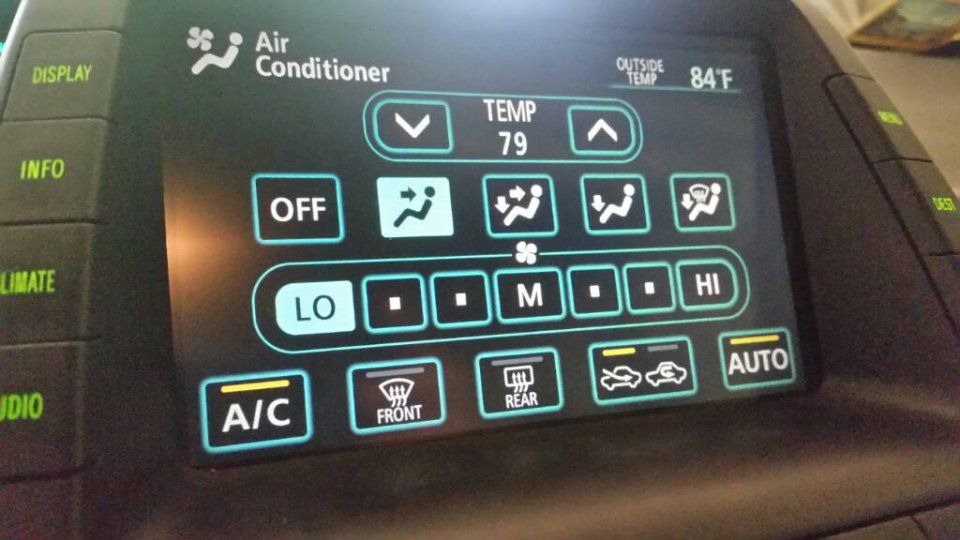
Without a doubt, one of the biggest pluses of the Prius is CHEAP 24/7/365 access to air conditioning & heat.
While one can use the climate control in any car, it’s very expensive to do so. You can easily lose a couple of gallons when running the a.c. & heat continuously all day and night. Because most vehicles run on gasoline when idling, this isn’t practical or cost-effective.
Not so with the Prius. When the air conditioning or heat is turned on, the car mainly operates off of its large traction (electric) battery. The gasoline powered engine only starts every 5-10 minutes (for a duration of 2-3 minutes), simply to recharge the traction battery.
In a nutshell, this means that the Prius uses just a small fraction of the gasoline that a conventional (non-hybrid) vehicle does. It basically sips fuel.
During the extreme colder/hotter months on the east coast where I’m based, it’s very common for me to be running the climate control almost around the clock. Since I live & work in my car, I’m inside of it for about 22 hours per day. The a.c. & heat is being used most of that time. Yet…
It costs me next to nothing. Maybe $1.50-$2.00 for round-the-clock usage daily!
This cannot be done in non-hybrid vehicles. And forget about larger, conventional vans & trucks.
The main reason I opted for a Prius (after much, much debate) was for this very ability. As long as I have cheap, on-demand climate control, I can easily deal with the few drawbacks that the car has.
Keeping cool and staying warm are creature comforts I’m not willing to sacrifice on.
PRIUS CAMPERS HOLD THEIR VALUE
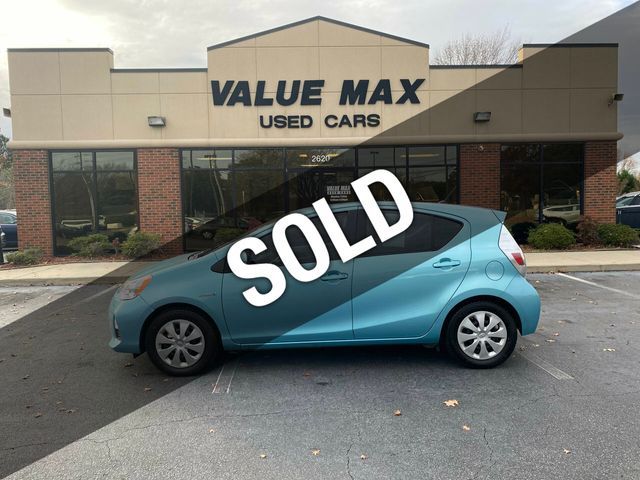
This is a major advantage if and when you choose to sell your car, as it’s likely you’ll get a higher resale value.
And it’s not just nomads who are after Prius’. As one of the best-selling cars ever, the general public is hot for them, too.
Toyota is famous for manufacturing well-built, reliable, long-lasting cars in general, but hybrid vehicles like theirs are fast becoming the new norm. Fuel-efficiency, dependability and a sleek design are just some of the reasons why.
Compare this to most other types of vehicles and campers - especially RV’s - which decrease in value tremendously after 6 or 7 years.
PRIUS CAMPER DRAWBACKS

As I said at the beginning of this article, I actually live in a Prius myself.
After 12 months full-time on the road, I fully stand behind the information I’m sharing here.
Because of that, I’m also going to list a few important drawbacks that Prius' have. Here they are, in no particular order…
HIGHER COST

Prius’ are in-demand, as they help people save a tremendous amount of money at the fuel pump and can last for 200,000 miles or more. But this means you’ll pay a premium when buying, either new or used.
If you’re car shopping by price alone, the cost of a Prius might seem steep, because it is.
Versus other vehicles, you’re definitely going to pay higher for a Prius. The prices might be prohibitive for some people.
NO OFF-ROAD CAPABILITY

Prius’ simply aren’t built to handle extreme terrains like a Jeep, pick-up truck or other vehicles. Exploring deep in the woods, many parts of the desert, etc., are going to be quite difficult - if not impossible - for a Prius to traverse.
If these are the types of locales that you’ll be visiting often, you’re much better served getting a vehicle that can handle these types of demanding areas.
They do sell aftermarket lift kits for Prius'. This will enable them to go almost anywhere off-road. But once you factor in the kit itself and installion, you might be looking at close to $1,000 or more.
EXPENSIVE REPAIRS
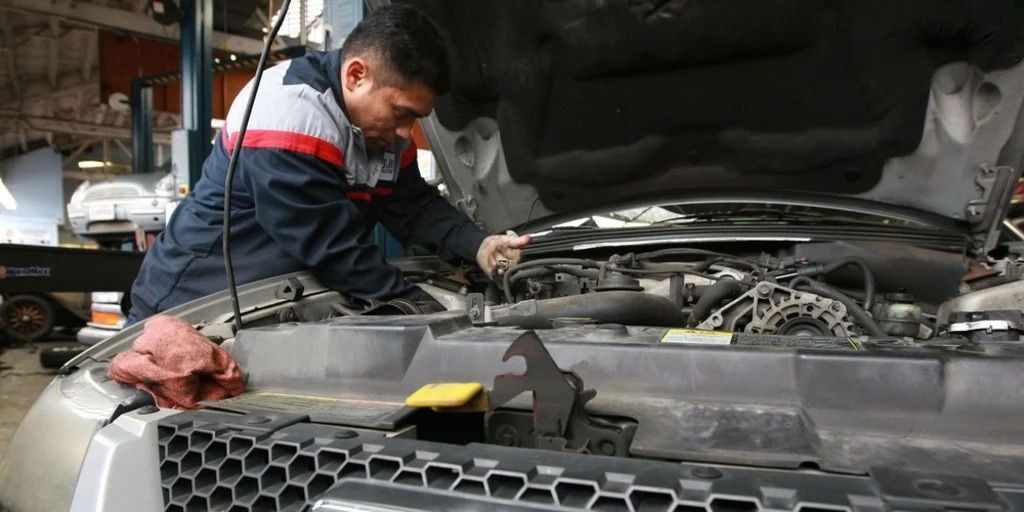
As well-built and reliable as Toyotas are, just like any any car, they do require occasional repairs…especially if it’s a used or older vehicle.
Larger repair jobs tend to be more pricey than on non-hybrid cars. The reason is...
Not all mechanics are well-versed in fixing hybrids, and a certified hybrid mechanic is oftentimes required. Certified hybrid mechanics and shops charge greater labor costs.
On top of this, some parts and components of hybrids are more expensive than non-hybrid vehicles.
If you’re stuck with a bad Prius, be prepared to shell out big.
Some of the most common, more expensive issues with Prius’ are the following…
-
Hybrid Battery Replacement: The hybrid battery in a Prius can last for many years, but eventually, it may need to be replaced. The cost for a new one ranges from $2,000 to $4,000. Used batteries - which are not as reliable - can be had for $1,200 to $1,800.
-
Inverter Water Pump Replacement: The inverter water pump helps keep the hybrid system cool, and it may need to be replaced after several years of use. The cost for this repair can range from $400 to $1,200, depending on the year and model of the Prius.
-
Brake Actuator Replacement: The brake actuator helps control the regenerative braking system in a Prius, and it can fail over time. The cost for this repair can range from $1,000 to $2,500.
-
EGR Cooler Replacement: The EGR (exhaust gas recirculation) cooler helps reduce emissions in a Prius, but it can become clogged or damaged over time. The cost for this repair can range from $500 to $1,500.
-
Inverter Assembly Replacement: The inverter assembly is a key component of the Prius's hybrid system, and it can fail after several years of use. The cost for this repair can range from $2,000 to $4,000, depending on the year and model of the Prius.
TYPES OF PRIUS CAMPERS
Standard Prius
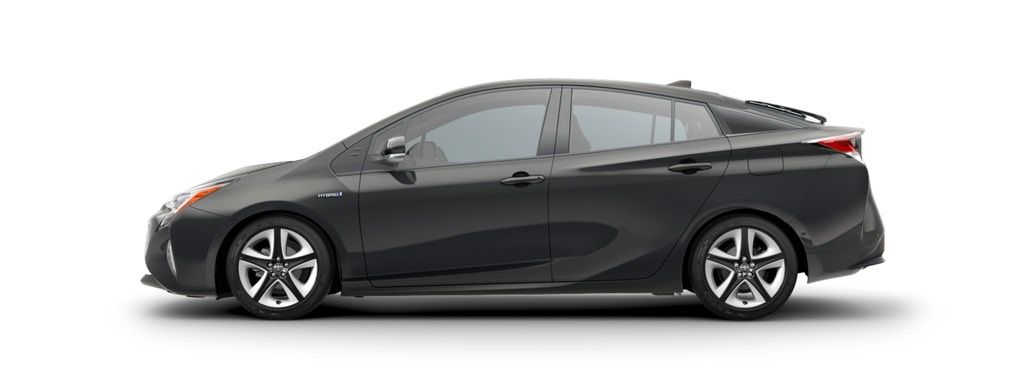
Cargo space: 24.6 cubic feet
- Engine: 1.8-liter four-cylinder engine paired with an electric motor, producing a combined 121 horsepower
- Fuel economy: 54 mpg city/50 mpg highway
With its spacious cargo area, the standard Prius can provide a comfortable sleeping space for one or two people.
The back seats can be folded down to create a flat surface, which can be covered with any type of sleeping pad or mattress.
If you're seeking a car that's a bit more sporty looking - which Prius' usually are not - then this model is the one you want.
Prius V
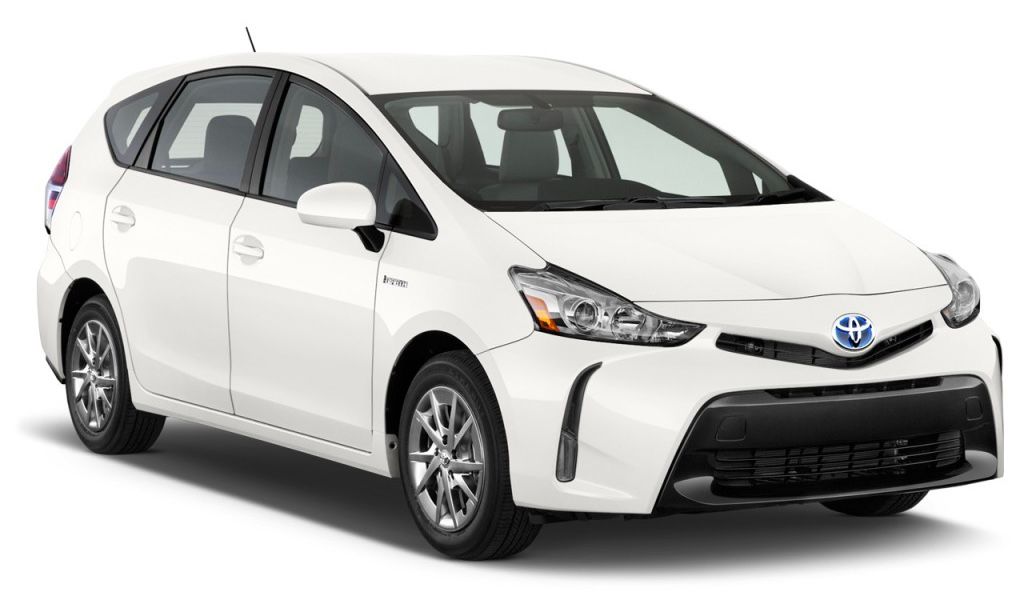
Cargo space: 34.3 cubic feet behind the rear seats, 67.3 cubic feet with rear seats folded
- Engine: 1.8-liter four-cylinder engine paired with an electric motor, producing a combined 134 horsepower
- Fuel economy: 43 mpg city/39 mpg highway
The larger cargo area in the Prius V can make it a more comfortable option for sleeping, especially if you are taller or need more space.
The rear seats can be folded flat, creating enough space for a mattress or sleeping pad.
The Prius V's high roofline also provides ample headroom, which can be helpful for taller individuals.
The added cubic feet that this model offers is also perfect for stowing all of your personal belongings and gear.
Prius C

Cargo space: 17.1 cubic feet
- Engine: 1.5-liter four-cylinder engine paired with an electric motor, producing a combined 99 horsepower
- Fuel economy: 48 mpg city/43 mpg highway
While the cargo area in the Prius C is smaller than the other Prius models, it can still be a viable option for sleeping inside.
The rear seats can be folded down to create a flat surface, which can be covered with any type of mattress. But sleeping more than one person is going to much tougher, and a very tight squeeze.
The smaller size and even greater fuel economy of the Prius C is a plus, as it means even higher savings on gas, and being able to fit into tight parking spots.
If you’ve got a few extra bucks to spend…
CHECK OUT THIS LUXURY PRIUS CAMPER
WHERE IS THIS PRIUS CAMPER MADE?
This unique vehicle - named 'The Relax Cabin' - was manufactured in Japan, and was primarily aimed at camping enthusiasts in the asian market back in 2012. However, after news of the vehicle became viral, it drew worldwide attention, including heavy interest from within the United States.
WHO IS CAMP-INN, THE MAKER OF THIS PRIUS CAMPER?
Officially known as CAMP-INN Japan, this Japanese company makes a variety of campers, both big & small.
WHAT FEATURES DOES THIS PRIUS CAMPER HAVE?
Spacious Interior: The Prius camper by Camp Inn is designed to offer a comfortable and spacious interior, with ample room for sleeping, cooking, and storage. The interior features a convertible bed that can accommodate two people, along with a small kitchenette that includes a sink, refrigerator, and stove.
Lightweight Design: The Prius camper is built with lightweight materials, making it easy to tow with a small car or SUV. Despite its compact size, the camper includes a range of amenities that make it ideal for weekend getaways or extended camping trips.
Solar Power System: One of the most unique features of the Prius camper is its solar power system, which allows you to harness the power of the sun to charge your batteries and power your appliances. This system is designed to be highly efficient and can provide ample power for all your camping needs.
Smart Home Integration: The Prius camper is also designed to be highly connected, with a range of smart home features that allow you to control your camper from your smartphone or other device. You can use these features to adjust the temperature, turn on the lights, and monitor your power usage, among other things.
No bathroom was included on The Relax Cabin Prius camper.
CAN YOU STILL BUY THIS PRIUS CAMPER?
Although based in Japan, they did at one time offer their campers for sale in the U.S., however, that no longer appears to be the case.
Your best bet to get one would be finding a used model here in U.S., which I'm assuming would be pretty challenging, as not many were sold in our parts.
FINAL THOUGHTS
I wouldn't recommend something I don't believe in or stand behind.
After living out of my Prius for 12 months now, I can definitively say that it's the perfect nomad camping vehicle for me. However...
Everyone's situation is different, and this is why research is so important. You MUST make a list of all your wants & needs before buying a vehicle.
There are plenty of vans, trucks, and other cars that can be transformed into amazing campers. But I hope the thoughts I've shared explains the reasons why I think the Prius beats them all.
LIVE WISELY, LIVE WELL!

